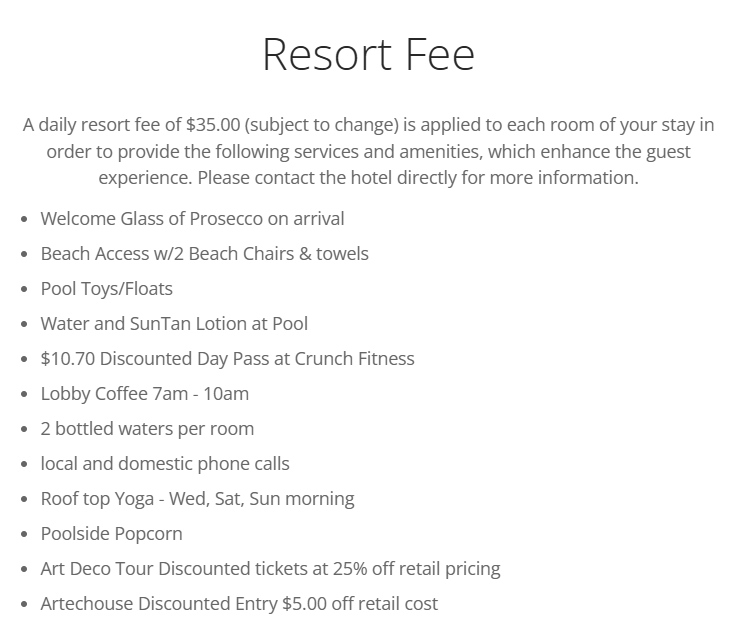Why Hotel Charge Resort Fee 2024 Explained for Travelers in the U.S. is a topic that has become increasingly relevant as more travelers plan their trips and encounter unexpected charges at check-out. These fees, often labeled as “resort fees” or “amenity fees,” are additional costs that hotels impose on guests beyond the base room rate. While they may seem like an extra burden, resort fees are typically used to cover amenities such as access to pools, fitness centers, Wi-Fi, and other services that guests might use during their stay. Understanding why hotels charge these fees can help travelers make informed decisions and avoid surprises when settling their bills.
What Are Resort Fees?
Resort fees are a type of surcharge that many hotels, especially those in popular tourist destinations, add to a guest’s total bill. These fees vary widely depending on the location, the hotel’s rating, and the specific amenities offered. For example, a luxury resort in a beachfront location might charge $50 per night in resort fees, while a budget hotel in a smaller city might not charge anything at all. The fee is usually listed as a separate line item on the final bill, which can sometimes be confusing for travelers who are not expecting it. It’s important to note that resort fees are not always mandatory, but they are often included in the booking process without clear disclosure.
Why Do Hotels Charge Resort Fees?

The primary reason hotels charge resort fees is to offset the cost of maintaining and providing various amenities to guests. These fees help cover expenses related to pool maintenance, gym equipment, spa services, and even complimentary breakfasts or shuttle services. In some cases, the fee might also contribute to the hotel’s overall operational costs, such as staff salaries and utilities. For travelers, this means that the base room rate they see when booking might not reflect the full cost of their stay, as the resort fee is added at the end.
Additionally, resort fees can serve as a revenue stream for hotels, allowing them to offer competitive base rates while still generating income from the amenities provided. This strategy is particularly common in high-demand areas where hotels want to attract a wide range of guests without making the initial price too high. However, it’s essential for travelers to understand that these fees are not always optional and can significantly impact the total cost of their trip.
How to Avoid Surprises with Resort Fees
One of the best ways to avoid being caught off guard by resort fees is to research the hotel’s policies before booking. Many hotels list their resort fees on their websites or in the booking confirmation email, so it’s worth checking these details carefully. If the information is not readily available, it’s a good idea to contact the hotel directly to ask about any additional charges that might apply.
Another helpful tip is to look for hotels that do not charge resort fees, especially if you’re traveling on a budget. Some budget-friendly chains and independent properties choose not to include these fees, offering a more transparent pricing model. Additionally, travelers can consider booking through third-party platforms that allow them to filter out hotels with resort fees, ensuring a clearer understanding of the total cost upfront.
Tips for Managing Resort Fees

For travelers who find themselves facing resort fees, there are several strategies to manage the cost effectively. One option is to inquire whether the fee can be waived, especially if the guest is staying for an extended period or booking during a slower season. Some hotels may be willing to offer discounts or exemptions for long-term stays or loyal customers.
Another approach is to focus on the value provided by the resort fee. If the fee covers amenities that the traveler plans to use, such as a pool or gym, it might be worth the cost. However, if the amenities are not needed, the fee could be considered an unnecessary expense. Travelers should weigh the benefits against the cost and decide whether the fee is justified based on their personal needs.
Conclusion
Understanding why hotels charge resort fees in the U.S. is crucial for travelers looking to manage their budgets effectively. These fees, while often overlooked, can add up quickly and impact the overall cost of a trip. By researching hotel policies, asking questions before booking, and considering alternatives, travelers can make informed decisions and avoid unexpected charges. As the travel industry continues to evolve, it’s likely that more transparency around resort fees will become standard, helping to create a more predictable and enjoyable experience for all guests.



